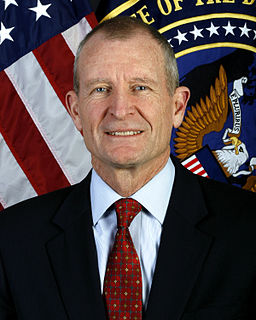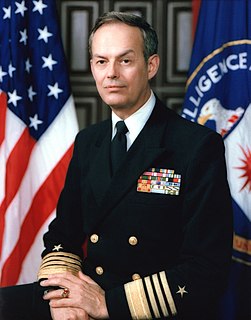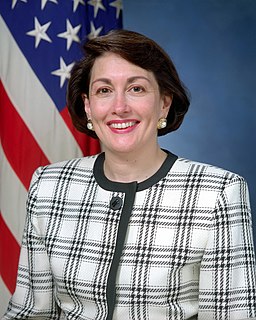A Quote by Dennis C. Blair
Before 9/11 there were weak procedures, willingness, and mechanisms for communicating among agencies for foreign intelligence and the FBI with its focus on law enforcement. The domestic-vs.-foreign barrier has been solved by the reforms after 9/11 that established the DNI.
Related Quotes
The Department of Justice believes, and the case law supports, that the president has inherent authority to conduct warrantless physical searches for foreign intelligence purposes, and that the president may, as has been done, delegate this authority to the attorney general. It's important to understand, senators, that the rules and the methodology for criminal searches are inconsistent with the collection of foreign intelligence and would unduly frustrate the president in carrying out his foreign intelligence responsibilities.
In the sublime days before 11 September 2001, when the powerful were routinely attacking and terrorising the weak, and those dying were black or brown-skinned non-people living in faraway places such as Zaire and Guatemala, there was no terrorism. When the weak attacked the powerful, spectacularly on 9/11, there was terrorism.
Apparently we've got open borders. We've got people in this country all over the place that could be part of cells. After 9/11 happened, you have to understand, leadership and law enforcement after 9/11, they really got reamed for doing a horrible job of preventing it when in many people's minds it was preventable.
I think the world is more perilous and America is basically undefended. For me the two touchstones after 9/11 for domestic security were our borders. Not for discriminatory reasons or to stop immigration, but simply to allow law enforcement to find out who is in our country without facing an undocumented pool of aliens that increases by the hour.
The FBI has built up substantial expertise to address cyber threats, both in the homeland and overseas. Here at home, the FBI serves as the executive agent for the National Cyber Investigative Joint Task Force (NCIJTF), which joins together 19 intelligence, law enforcement, and military agencies to coordinate cyber threat investigations.
We know that, immediately after 9/11, the CIA set up a program to collaborate with 80 foreign countries to varying degrees. The CIA also started funding other intelligence services in order to use them as proxies. We also know that some of these collaborations were kept off the record; supposedly, there is no paper trail.



































